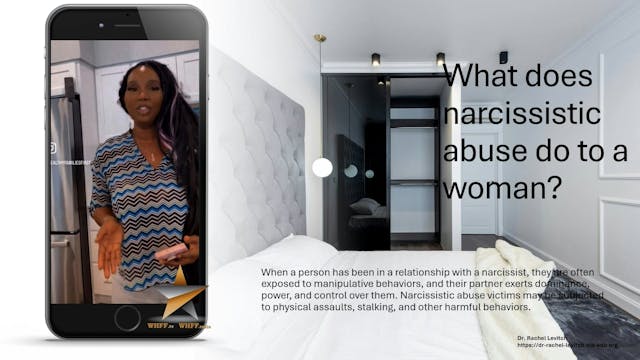Dating After a Narcissist: Forward with Confidence
About Dr. Rachel-Leah
About Dr. Rachel-Leah | Family Advocacy, Parenting, and Child Welfare Reform
About Dr. Rachel-Leah
Advocacy and Mission
Dr. Rachel-Leah’s advocacy promotes successful families through strong parent-child relationships and healthy communication. Her philanthropy focuses on improving state systems and legislative processes surrounding child welfare, ensuring that children’s health, wellness, and safety are at the forefront of policy.
As a Doctorate of Performance Improvement and author, Dr. Rachel-Leah brings academic insight and lived experience to her mission. She is a passionate parent advocate working to protect parental freedoms and strengthen democratic principles across communities.
Experience and Impact
For nearly a decade, Dr. Rachel-Leah has been on the front lines defending families’ constitutional freedoms from harmful and unmandated state actions—specifically addressing concerns within the Texas Department of Family and Protective Services. Her story includes moments of deep concern, loss, and triumph, leading to a successful return to family unity and continued advocacy for better case management and leadership accountability.
Parenting, Humanity, and Social Well-Being
Enjoy content for parents about parenting and being ACTUAL HUMAN BEINGS...
Social Determinants of Health
Inequities in the social determinants of parenting increase the negative effects on how we parent and how legislators perceive diverse cultural parenting styles. For some racial and ethnic groups, these inequities deepen the challenges of raising children within fair and supportive systems.
We must work together to reduce the negative effects that the concept of "parenting while a person of color" has on individuals and communities, including addressing inequities in the social determinants of health. Learn more about what we can do to move towards parenting equity at
Audio Message From Dr. Levitch.
Impact of Stress
It’s natural to feel stress, anxiety, grief, and worry during challenging times. Feeling strong emotions or being stressed can have negative effects on your physical and mental health, as well as your parenting approach. Dr. Rachel-Leah encourages self-compassion and awareness as essential components of effective parenting and healthy relationships.
Education & Resources
To learn more about Dr. Rachel-Leah’s academic and consulting work, visit:
Cognitive Institute of Dallas — offering course materials and scholarship information.
Parenting Relationships and Self-Image — her family consulting firm and client scheduling portal.
Podcast and Media
Listen to Dr. Rachel-Leah’s podcast at WHFF.Radio where she discusses family systems, leadership, and the ongoing pursuit of ethical public service.
Resource Library
Explore publications and educational materials from Generation 30 Publishing:
Racial Bias
When Child Services Takes Your Children
What Child Welfare Broke in Your Children
Women in Leadership
Why Is Everyone So Angry?
Parenting and Technology
WHFF Radio and TV on iHeart Radio
Upcoming Releases
© Dr. Rachel-Leah. All Rights Reserved.
-
Dating A Person with Trauma
Research from the Centers for Disease Control and Prevention had found that the more traumatic events a person suffered in childhood -- the more likely he or she was to also suffer from chronic stress-related health problems and longevity.
YouTube: https://www.youtube.com/@whffofficial_
YouTube... -
Why Is Everyone So Angry
Anger is a common symptom among adults seeking outpatient mental health treatment. Anger, because it is often associated with substantial hostility and aggression, in extreme or dysfunctional forms, anger may also lead to adverse health consequences. Why is everyone so angry?
YouTube: https://...
-
Methods Narcissits Use to Traumatize
Narcissists may use manipulation tactics such as saying something hurtful and passing it off as a joke.
Overcoming manipulation could involve listening to oneself, setting boundaries, and refusing to engage in verbal combat.
It’s important for people to be proactive about protecting themselves ...
-
Understanding How Narcissists Choose
Narcissists choose their victims based on vulnerabilities such as insecurity, empathy, people-pleasing tendencies, lack of assertiveness, and naivety.
YYouTube: https://www.youtube.com/@whffofficial_
YouTube: https://www.youtube.com/channel/UCnCzmqdYeOIPnA-aTjOvNmwResources Links:
Education In... -
Tactics For Narcissist's and Protection
Recognizing tactics used by narcissists like love bombing, gaslighting, triangulation, emotional manipulation, projection, and silent treatment can help protect oneself from falling victim to manipulation.
YouTube: https://www.youtube.com/@whffofficial_
YouTube: https://www.youtube.com/channel/U... -
Understanding Narcissistic Behavior
To navigate relationships effectively and protect yourself from being manipulated by narcissists, it’s essential to understand the behaviors typical of these individuals.
YouTube: https://www.youtube.com/@whffofficial_
YouTube: https://www.youtube.com/channel/UCnCzmqdYeOIPnA-aTjOvNmwResources ...
-
Dating a Victim of Narcissistic Abuse
Our past experiences, including past relationships, can have a lasting impact on us. In some cases, bad experiences from a past relationship can creep into our future relationships. Dating a victim of narcissistic abuse is one such scenario.
Resources Links:
Education Institute: https://www.c... -
Why Dating a Victim Is Challenging
With around 1-5% of people who have Narcissistic Personality Disorder (NPD), chances are, you may come across a narcissist, or someone abused by a narcissist at some point in your dating life.
YouTube: https://www.youtube.com/@whffofficial_
YouTube: https://www.youtube.com/channel/UCnCzmqdYeOIPn... -
Dating a Victim of Abuse and Trauma
If you’re dating someone who was abused by a narcissist, it’s important to understand what they’ve endured, as well as how it will continue to affect them into the future.
YouTube: https://www.youtube.com/@whffofficial_
YouTube: https://www.youtube.com/channel/UCnCzmqdYeOIPnA-aTjOvNmwResources...
-
Narcissistic Abuse Toward Women
Dating after narcissistic abuse can be challenging because the effects of an abusive relationship can lead to ongoing distress. When learning about narcissistic abuse, it’s helpful to understand that both men and women can be victims of narcissistic abuse. Here, we talk about how it can affect wo...
-
Narcissistic Abuse Toward Women Pt 2
When a person has been in a relationship with a narcissist, they are often exposed to manipulative behaviors, and their partner exerts dominance, power, and control over them. Narcissistic abuse victims may be subjected to physical assaults, stalking, and other harmful behaviors.
YouTube: https...
-
Trauma Symptoms of Narcissistic Abuse
Dating someone who has been abused by a narcissist means you need to be aware of their triggers because they are likely to show symptoms of trauma. This means they may have a difficult time experiencing positive emotions, and they could also have flashbacks of past abuse.
YouTube: https://www.y...












